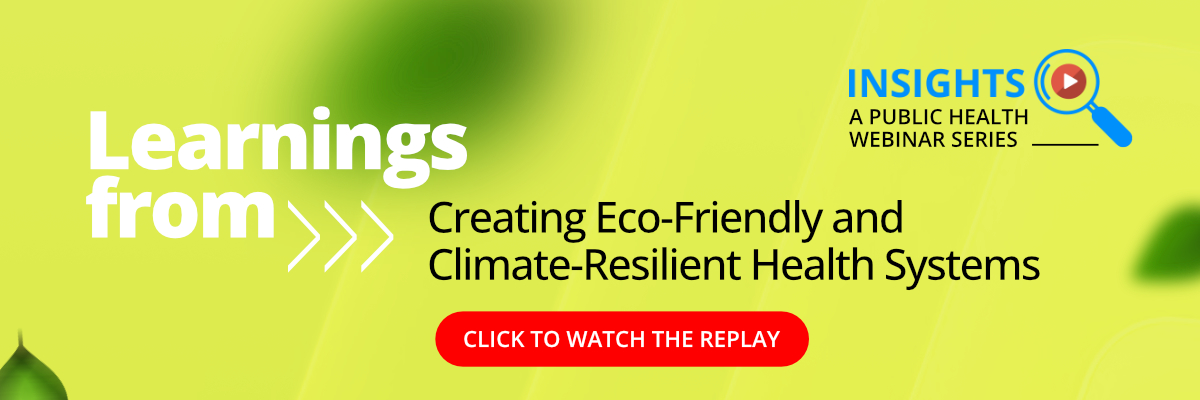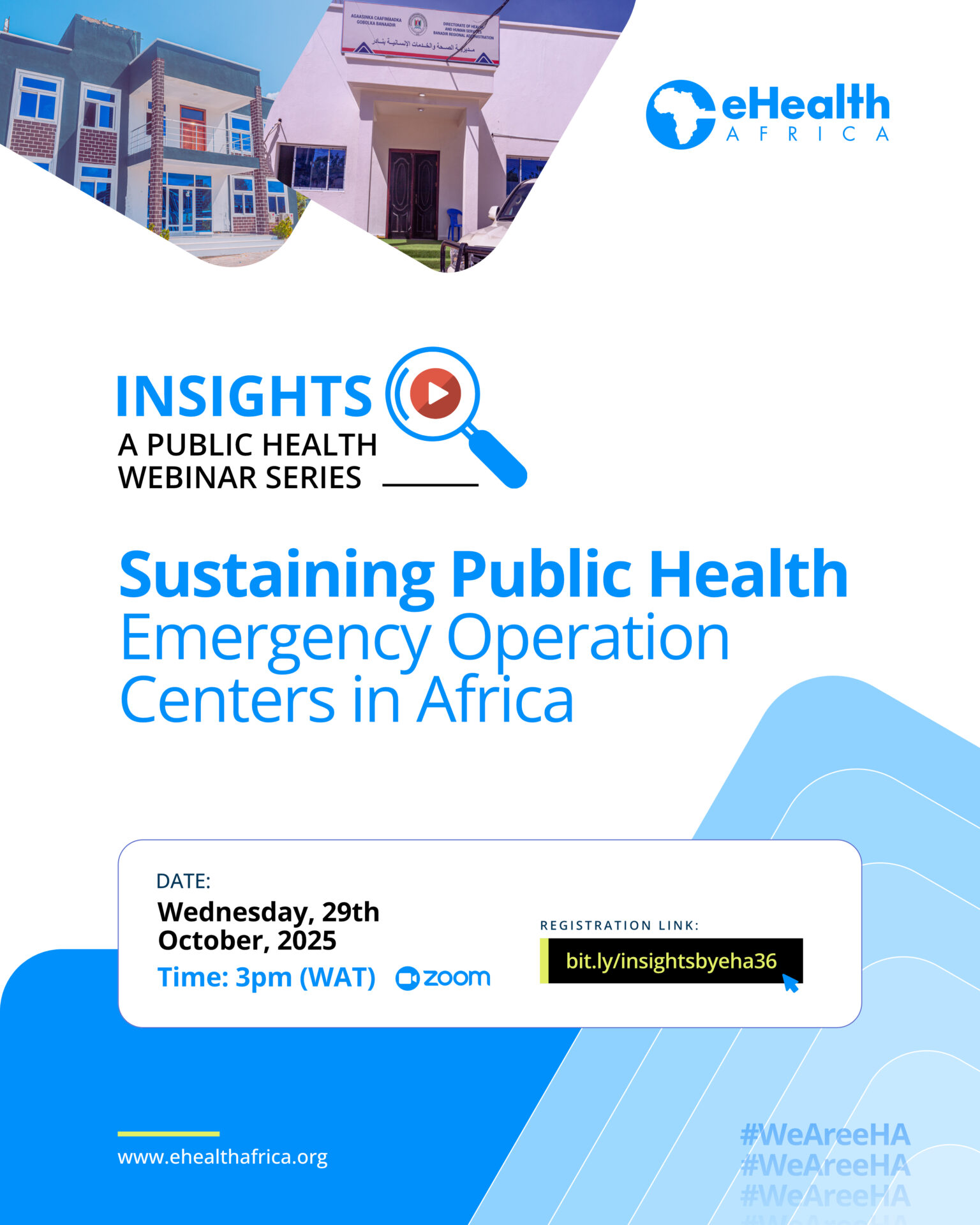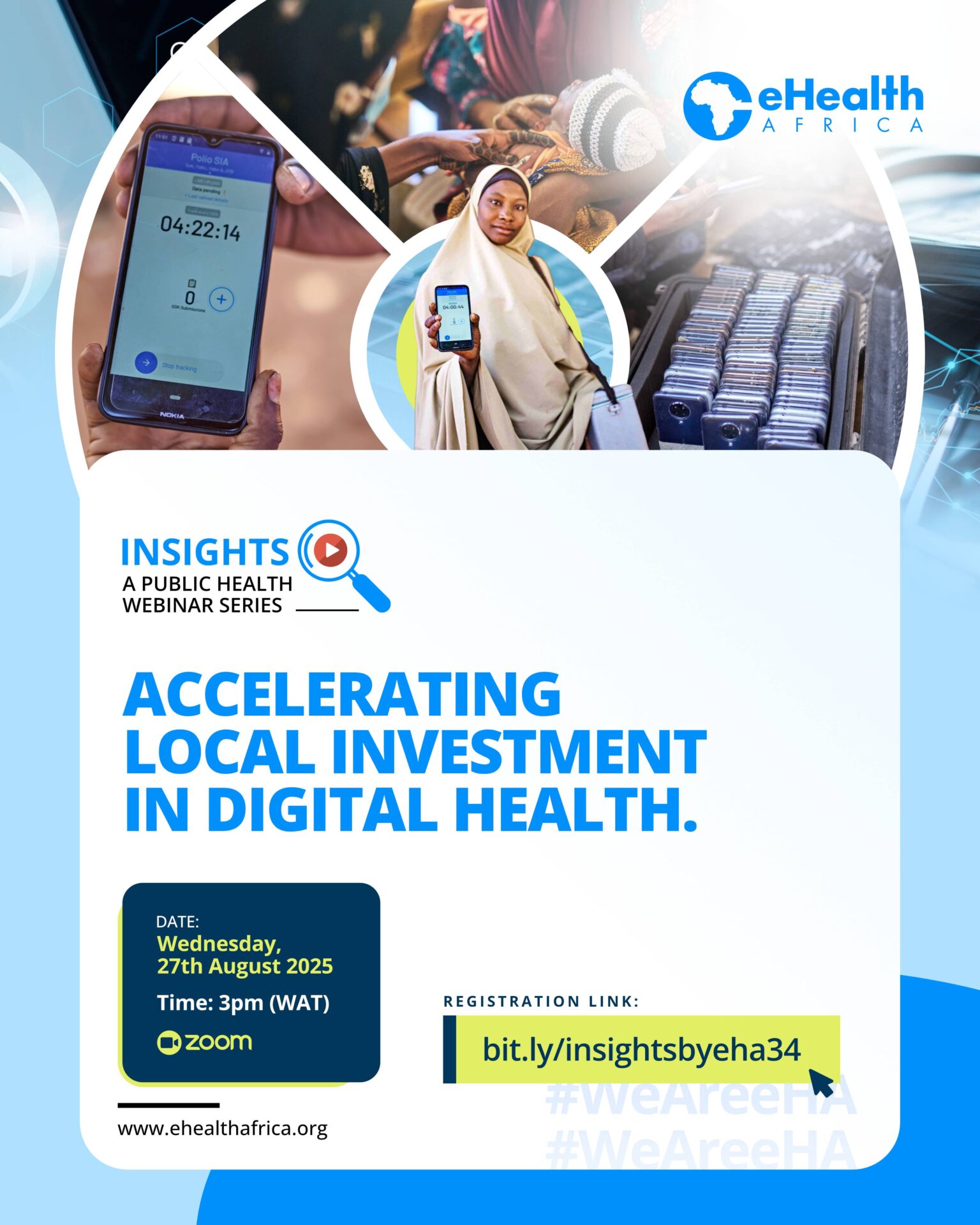Events
INSIGHTS – Creating Eco-Friendly and Climate-Resilient Health Systems


Insights : Creating Eco-Friendly and Climate-Resilient Healthcare Systems
Moderator:
Joyce Shinyi – Communications Associate, eHealth Africa
Panelists
- Temitayo Tella-Lah – Program Manager, Climate Change Adaptation in Health Food Security and Nutrition at eHealth Africa
- Bankole Oloruntoba – CEO , Nigeria Climate Innovation Center (NCIC)
- Praise Agbe – Climate and Health Lead, Pathfinder International.
Summary
The 33rd episode of the Insights Webinar Series, hosted by eHealth Africa, focused on the timely theme: “Creating Eco-Friendly and Climate-Resilient Healthcare Systems.” The session brought together experts to explore practical solutions for strengthening healthcare delivery in the face of climate change.
The webinar opened with a powerful message from Dr. David Akpan, who framed climate change as a public health emergency. He stressed that beyond infrastructure, climate resilience must be embedded in how health systems function, highlighting the urgent need for adaptive policies, capacity building, and coordinated action across all levels of governance.
Building on this, Program Manager, Climate Change Adaptation in Health Food Security and Nutrition at eHealth Africa, Temitayo Tella-Lah emphasized the need for climate-resilient health infrastructure. She provided practical examples such as flood-resistant facilities and rainwater harvesting systems, which ensure continuity of care during extreme weather events. A key highlight of her presentation was the CHAT tool;a mobile, open-source application hosted on the DHIS2 store. “A problem known is a problem half solved,” she noted, explaining how CHaT empowers health facilities to self-assess vulnerabilities, improve emergency preparedness, and even serve as community shelters or command posts during crises.
Adding a community-level perspective, Climate and Health Lead at Pathfinder International, Praise Agbe spoke on addressing the knowledge gaps among health workers. She stressed the value of continuous capacity building and collaboration with local stakeholders to strengthen frontline responses. In vulnerable settings like Internally Displaced Persons (IDP) camps, she advocated for simple but impactful eco-friendly practices such as waste recycling, tree planting, and reuse initiatives that both protect health and create economic opportunities. “It all starts from the mind,” she remarked.
In his own contribution, CEO , Nigeria Climate Innovation Center (NCIC) Bankole Oloruntoba emphasized that climate-smart healthcare is not a siloed effort saying it demands cross-sector collaboration, local innovation, and sustainable financing to drive long-term change.
The session offered a holistic view of how climate change intersects with public health, outlining clear strategies for resilience at the facility, policy, and community levels. With tools like CHaT, stronger health worker training, and green infrastructure, stakeholders can build systems that not only withstand climate shocks but actively support healthier, more sustainable communities.







